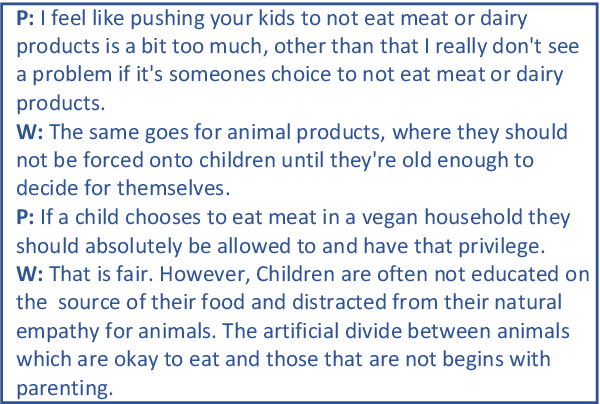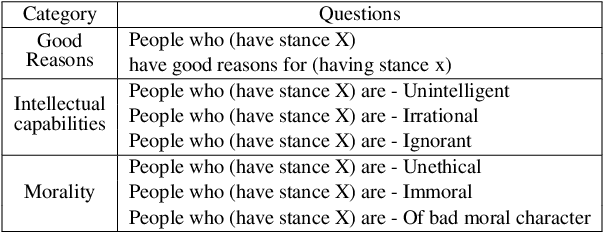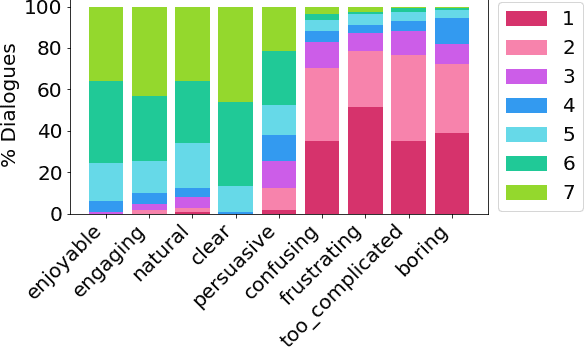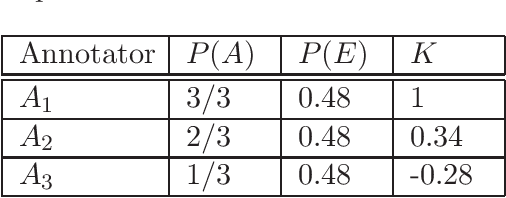Jacopo Amidei
Opening up Minds with Argumentative Dialogues
Jan 16, 2023



Abstract:Recent research on argumentative dialogues has focused on persuading people to take some action, changing their stance on the topic of discussion, or winning debates. In this work, we focus on argumentative dialogues that aim to open up (rather than change) people's minds to help them become more understanding to views that are unfamiliar or in opposition to their own convictions. To this end, we present a dataset of 183 argumentative dialogues about 3 controversial topics: veganism, Brexit and COVID-19 vaccination. The dialogues were collected using the Wizard of Oz approach, where wizards leverage a knowledge-base of arguments to converse with participants. Open-mindedness is measured before and after engaging in the dialogue using a questionnaire from the psychology literature, and success of the dialogue is measured as the change in the participant's stance towards those who hold opinions different to theirs. We evaluate two dialogue models: a Wikipedia-based and an argument-based model. We show that while both models perform closely in terms of opening up minds, the argument-based model is significantly better on other dialogue properties such as engagement and clarity.
Aligning Intraobserver Agreement by Transitivity
Sep 29, 2020

Abstract:Annotation reproducibility and accuracy rely on good consistency within annotators. We propose a novel method for measuring within annotator consistency or annotator Intraobserver Agreement (IA). The proposed approach is based on transitivity, a measure that has been thoroughly studied in the context of rational decision-making. The transitivity measure, in contrast with the commonly used test-retest strategy for annotator IA, is less sensitive to the several types of bias introduced by the test-retest strategy. We present a representation theorem to the effect that relative judgement data that meet transitivity can be mapped to a scale (in terms of measurement theory). We also discuss a further application of transitivity as part of data collection design for addressing the problem of the quadratic complexity of data collection of relative judgements.
 Add to Chrome
Add to Chrome Add to Firefox
Add to Firefox Add to Edge
Add to Edge